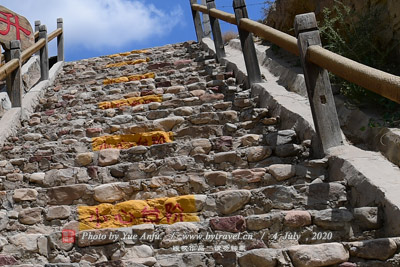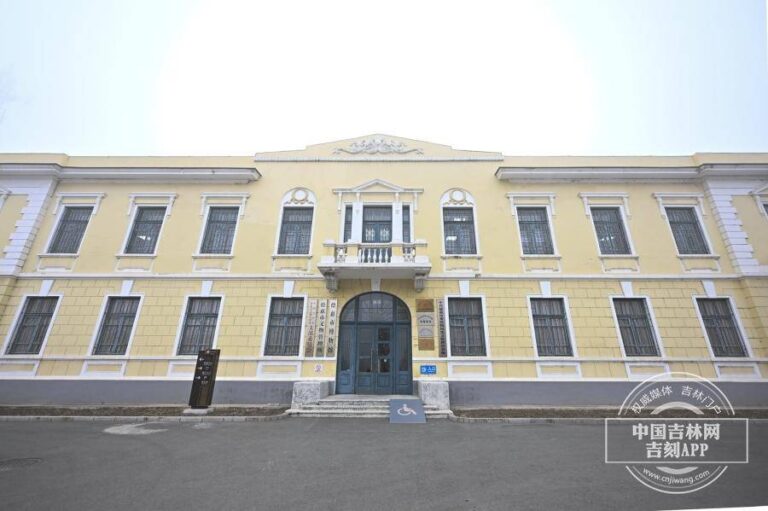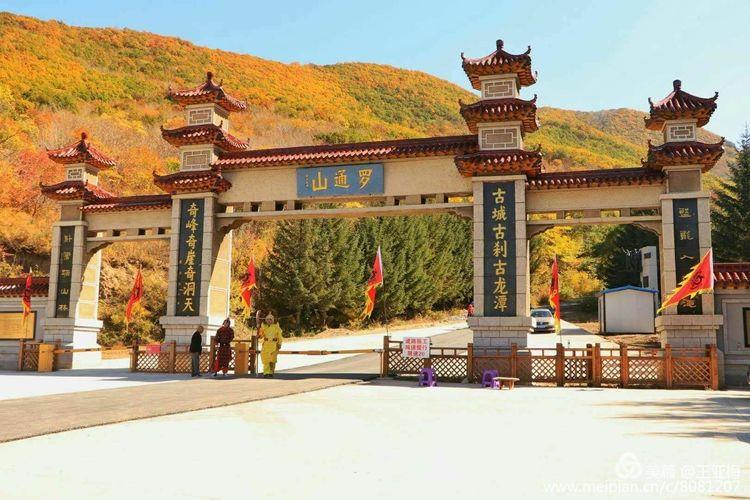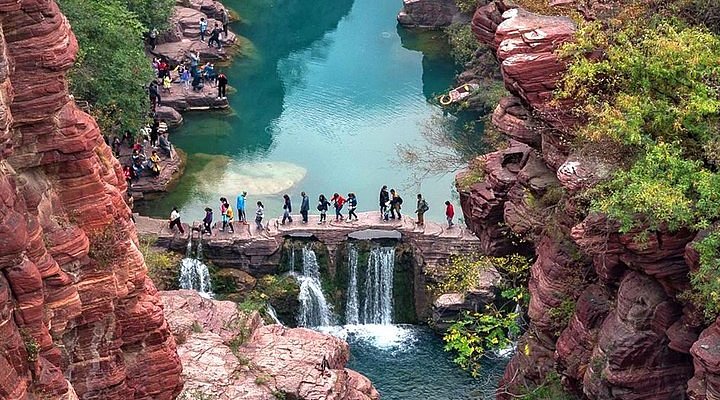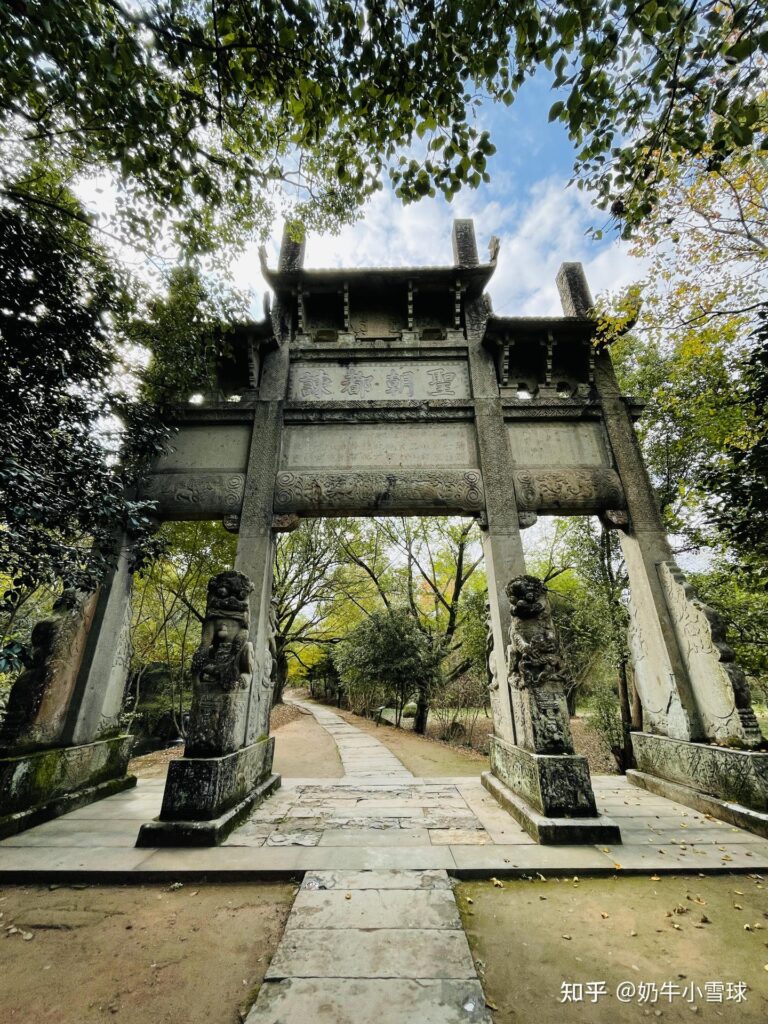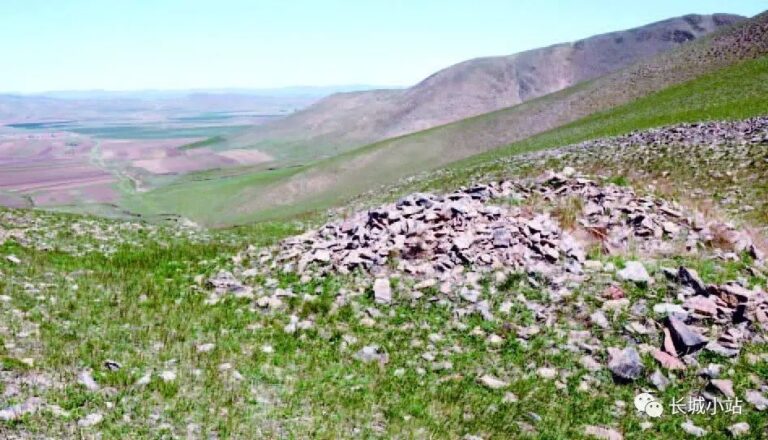Discover the Wonders of Zhangye Heishuiguo Yizhi: A Hidden Gem in Gansu
An Essential Guide to Visiting Zhangye Heishuiguo Yizhi
In This Guide
- An Essential Guide to Visiting Zhangye Heishuiguo Yizhi
- The Rich History of Zhangye Heishuiguo Yizhi
- Main Highlights: What to See at Zhangye Heishuiguo Yizhi
- Planning Your Visit: A Practical Guide
- Tickets, Hours, and Booking
- How to Get There
- Local Cuisine and Accommodation
- Frequently Asked Questions
- Final Thoughts on Your Trip
Nestled in the heart of Gansu Province, just northwest of Zhangye city, lies the enigmatic Zhangye Heishuiguo Yizhi, or the Black Water State Ruins. With a history stretching back over 4,000 years, this ancient site whispers tales of a once-thriving civilization that flourished along the strategic Silk Road. Known as the capital of the Xiao Yuezhi Kingdom during the Han Dynasty, the Black Water State is steeped in rich cultural heritage and archaeological significance.
Visitors to the site can explore the remnants of earthen city walls, ancient burial mounds, and the intriguing artifacts that hint at a complex society that navigated the challenges of its harsh desert environment. The ruins, surrounded by the beautiful landscapes of the Hexi Corridor, offer a unique glimpse into the past, where history melds with nature in a setting that remains relatively untouched by modern tourism.
Accessible year-round and free of charge, the site invites travelers to embark on a journey of discovery, weaving through time as they walk amongst the remnants of a civilization that once thrived by the banks of the Black River. As you stand amidst the crumbling walls and scattered relics, the echoes of history resonate, inspiring reverence for the resilience and ingenuity of those who came before. Whether you are a history enthusiast, an archaeology aficionado, or simply seeking a unique adventure off the beaten path, the Black Water State Ruins promise to be a captivating destination where the past vividly comes to life.
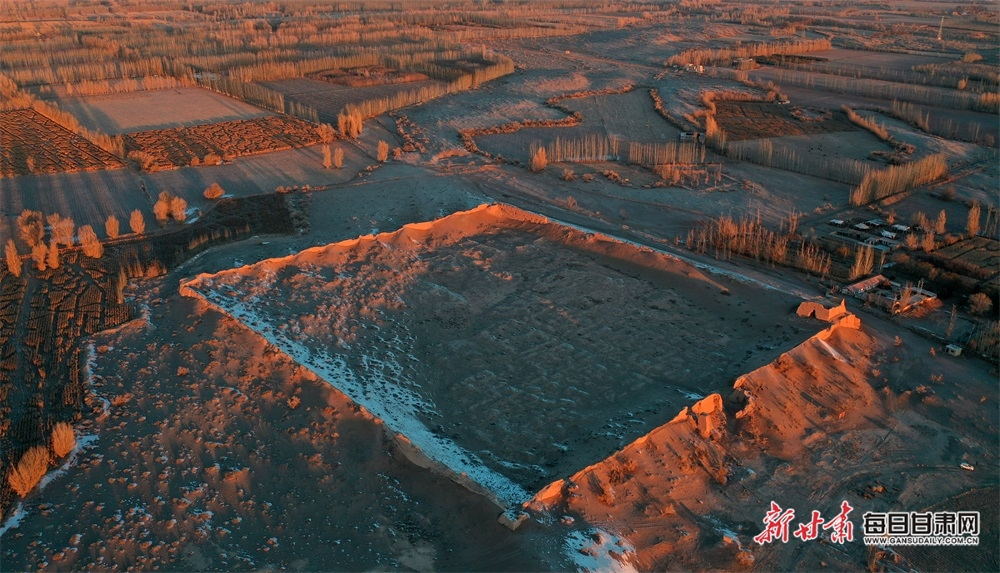
Zhangye Heishuiguo Yizhi.
The Rich History of Zhangye Heishuiguo Yizhi
The Zhangye Heishuiguo Yizhi, or the Black Water State Ruins, presents a fascinating glimpse into the rich tapestry of ancient Chinese history, particularly the dynamics of power, culture, and ecology in this region. Located approximately 12.5 kilometers northwest of Zhangye in Gansu Province, these ruins date back over 4,000 years and are a testament to the area’s historical significance as a vital cultural and political center.
Historically, the Black Water State was established around the time of the Xiongnu, a confederation of nomadic tribes that included the Huns and others. This territory was strategically important as it served as the capital of the Lesser Yuezhi State, a significant player during the Han dynasty. The area was known for the Black River (Heihe), which provided essential irrigation for agriculture, underpinning the region’s economy and sustenance.
The site itself is vast, stretching 15 kilometers from north to south and 10 kilometers from east to west, encompassing remnants of ancient cities, burial sites, and cultural artifacts. The ruins include the remains of fortress walls, burial mounds dating back to the Han dynasty, and various artifacts such as pottery, tools, and remnants of ancient structures. These findings not only mark the area’s historical significance but also highlight the blending of nomadic and agrarian cultures that characterized life in this region.
The name “Black Water” is believed to derive from the river that flows through the area, often described as carrying dark sediments. This river has played a critical role in both the prosperity and decline of the Black Water State. The region’s ecological and climatic changes, coupled with historical conflicts, ultimately led to its decline. By the time of the Ming dynasty, the city had faced significant challenges, including drought and warfare, which contributed to its eventual abandonment.
Throughout history, the Black Water State has been mentioned in various historical texts, such as the “Records of the Grand Historian” and the “Book of Han,” which document its rise and fall. These texts recount tales of military exploits, trade routes, and cultural exchanges that took place in the region, reflecting its importance as part of the ancient Silk Road.
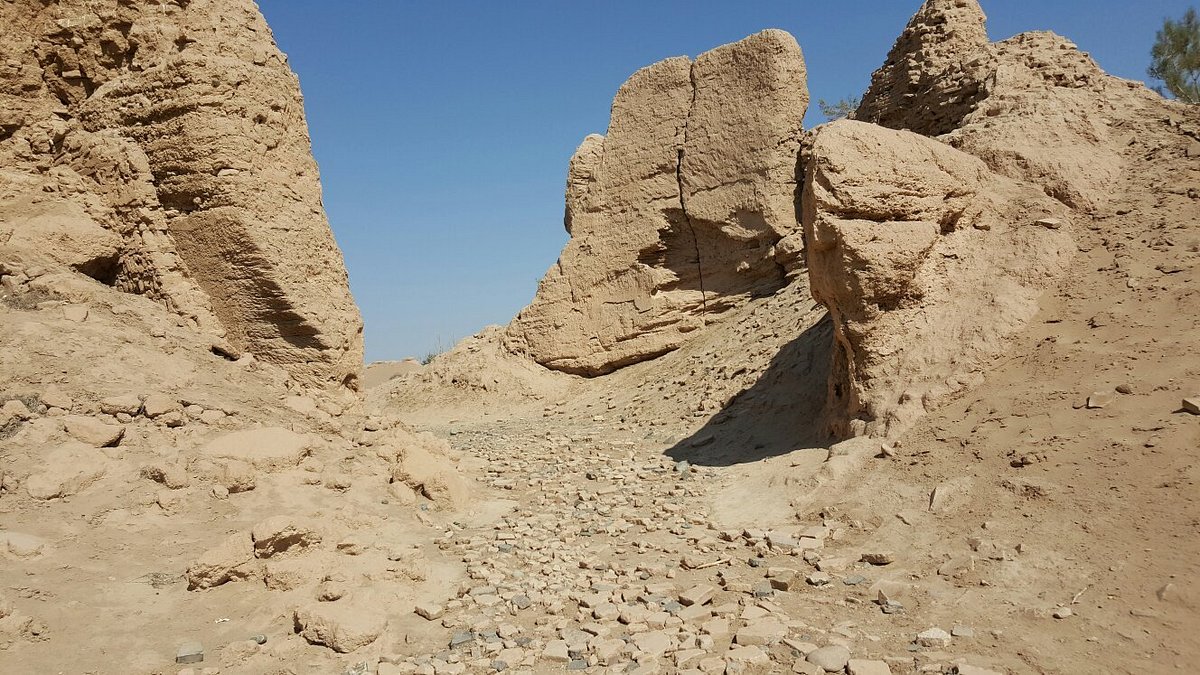
Zhangye Heishuiguo Yizhi.
Today, the Heishuiguo ruins stand as a national key cultural relic protection unit, attracting historians, archaeologists, and tourists interested in uncovering the secrets of this ancient civilization. Despite the passage of time and the ravages of nature, the site remains a poignant reminder of the region’s historical significance and a source of intrigue for those who seek to understand the complexities of China’s past. The juxtaposition of its rich history against the stark landscape of the Gobi Desert only adds to the mystique of this remarkable archaeological site.
Main Highlights: What to See at Zhangye Heishuiguo Yizhi
Zhangye Heishuiguo Yizhi, also known as the Black Water State Ruins, is a captivating historical site that beckons travelers with its rich tapestry of ancient stories and archaeological wonders. Located approximately 12.5 kilometers northwest of Zhangye city, this expansive site spans 15 kilometers from north to south and 10 kilometers from east to west, making it a significant cultural relic of the region.
One of the key highlights of the site is the impressive remnants of the Han Dynasty tombs, which reflect the area’s deep historical roots dating back over 4,000 years. These tombs, although many have succumbed to the sands of time, offer a glimpse into the burial practices and societal structures of the past. The site is recognized as a provincial-level protected cultural heritage area, emphasizing its importance to China’s archaeological narrative.
Visitors will find themselves exploring the ruins of ancient fortresses that tell tales of the Xiongnu and their establishment of the small Yuezhi kingdom, known locally as “Heishuiguo.” The name itself translates to “Black Water Country,” derived from the nearby Heihe River, which historically played a vital role in irrigation and agriculture in the Hexi Corridor. The river’s dark sediment, often stirred during floods, lent the region its name and has become a symbol of its natural heritage.
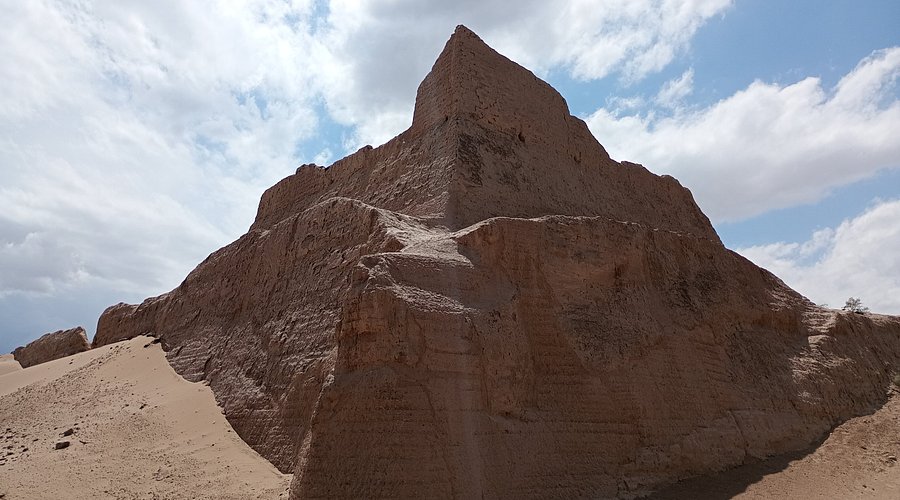
Zhangye Heishuiguo Yizhi.
The site is not only a treasure trove for history enthusiasts but also for those seeking a profound connection with nature. The surrounding landscapes, marked by rolling sands and remnants of ancient walls, provide an unspoiled atmosphere that feels both surreal and serene. As one wanders through the ruins, the whispers of history echo through the desolate yet beautiful terrain, inviting contemplation and reflection.
Accessibility is another advantage of the Heishuiguo ruins. Open year-round and free of charge, the site allows for spontaneous exploration. However, it’s advisable to prepare for a bit of adventure, as navigating the sandy paths may require a sturdy vehicle, particularly if you venture off the main routes.
In addition to the historical significance, the area is steeped in local folklore, with legends that add an air of mystery to the experience. Tales of the ancient city’s rise and fall, intertwined with environmental changes and human endeavors, offer a narrative that captivates the imagination.
Overall, a visit to Zhangye Heishuiguo Yizhi is a journey into the past that combines archaeological intrigue with the beauty of the natural landscape, making it a must-see destination for anyone traveling through Gansu Province. Whether you’re a history buff or simply looking for a unique adventure, this site promises to leave lasting impressions and stories to tell.
Planning Your Visit: A Practical Guide
Practical Guide to Zhangye Heishuiguo Yizhi (Black Water State Ruins)
Visiting the Zhangye Heishuiguo Yizhi, or the Black Water State Ruins, is an opportunity to explore a significant historical site that reflects the rich cultural tapestry of ancient China. Here’s what you need to know to make your visit both enjoyable and enlightening.
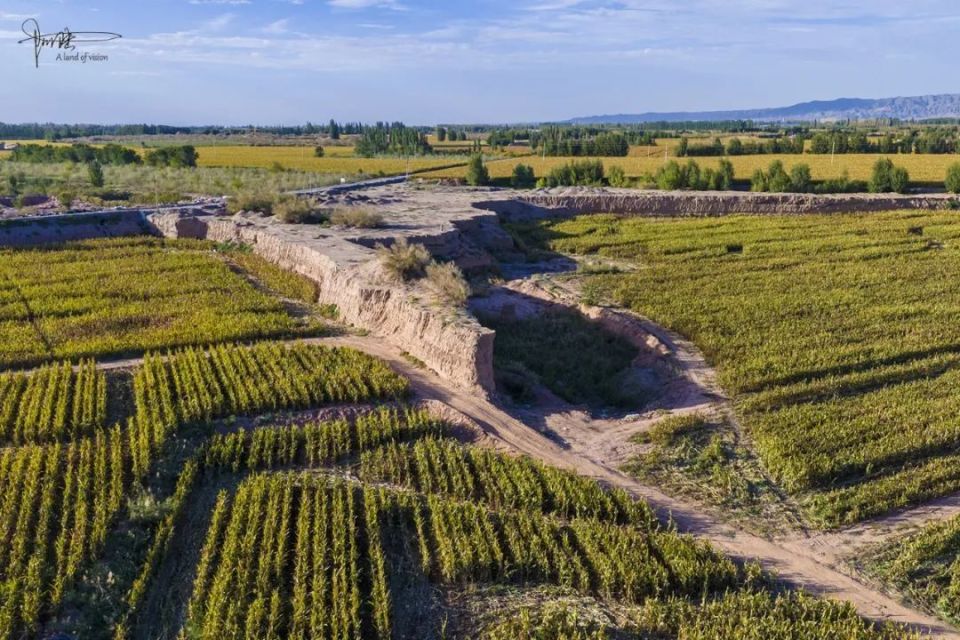
Zhangye Heishuiguo Yizhi.
Location and Access
The ruins are located approximately 12.5 kilometers northwest of Zhangye city in Gansu Province, China. The site is accessible by car or taxi, with navigation systems providing accurate directions. Be prepared for a short drive down a minor road once you reach the area to find the entrance.
Tip: If you’re driving, ensure your vehicle has good traction; the terrain can be sandy in parts, which may pose a challenge for non-off-road vehicles.
Admission Information
The entrance to the Black Water State Ruins is free. However, keep in mind that the site is relatively undeveloped, meaning there are few facilities available. As such, it’s recommended to plan ahead and bring necessary supplies, including water and snacks.
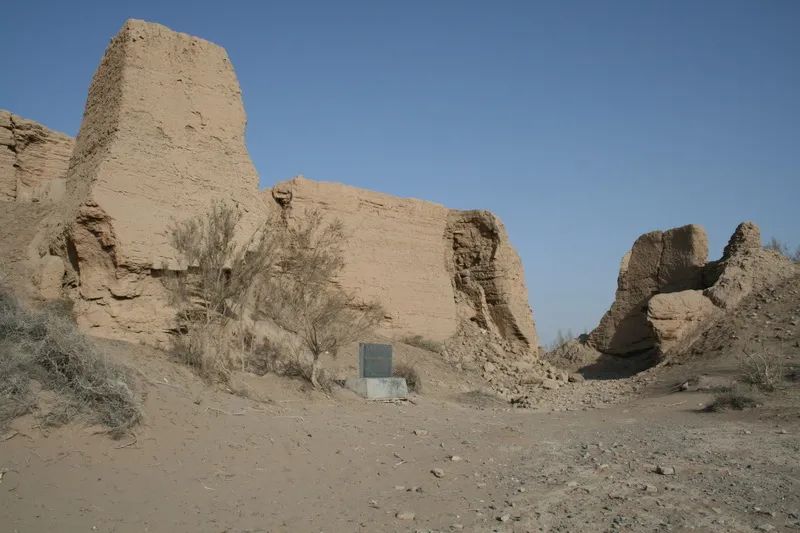
Zhangye Heishuiguo Yizhi.
Opening Hours: The site is open year-round, 24 hours a day, allowing visitors the flexibility to explore at their convenience.
What to See
The ruins span a sprawling area, showcasing remnants from the Neolithic period through the Han dynasty. Key features include:
- Ancient City Walls: Remnants of the walls that once surrounded this bustling city can still be seen amidst the sands.
- Han Dynasty Tombs: The site houses a collection of tombs, many of which are buried beneath shifting sands.
- Cultural Artifacts: Although many items have been looted over the years, some relics can still be found, offering glimpses into the rich history of the region.
Recommended Activities
- Photography: The unique landscape, combined with the remnants of ancient architecture, makes for stunning photography opportunities.
- Exploration: Take time to wander through the ruins, where the whispers of history can be felt amidst the ancient stones.
- Birdwatching and Nature Walks: The surrounding area, especially near the Black River, is home to various wildlife and offers a peaceful escape into nature.
Safety Tips
- Footwear: Wear sturdy shoes as the terrain can be uneven and sandy.
- Weather Preparedness: The area can experience extreme temperatures; dress in layers and bring sun protection during the day.
- Stay Hydrated: Bring sufficient water, especially if you plan to explore extensively.
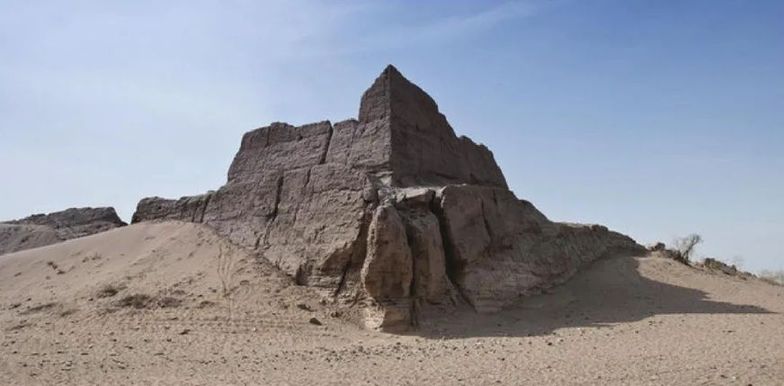
Zhangye Heishuiguo Yizhi.
Nearby Attractions
After visiting the Black Water State Ruins, consider exploring these nearby attractions:
- Zhangye Danxia National Geological Park: Famous for its colorful rock formations, this UNESCO World Heritage site is a must-see.
- Zhangye Giant Buddha Temple: Home to a large reclining Buddha statue, this temple provides a glimpse into the region’s Buddhist heritage.
- Qilian Mountains: Just a short drive away, the mountains offer breathtaking scenery and hiking opportunities.
Local Cuisine
When in Zhangye, don’t miss out on trying local dishes. Recommended eateries include:
- Pengxin Lamb Restaurant: Known for its roasted lamb dishes that reflect the region’s culinary traditions.
- Ganzhou Delicacies: This restaurant serves a variety of local specialties and is perfect for a hearty meal after a day of exploration.
Conclusion
Visiting Zhangye Heishuiguo Yizhi offers a unique glimpse into China’s ancient past, set against the backdrop of stunning natural beauty. With the information provided, you can make the most of your visit to this remarkable historical site. Enjoy your journey into history!
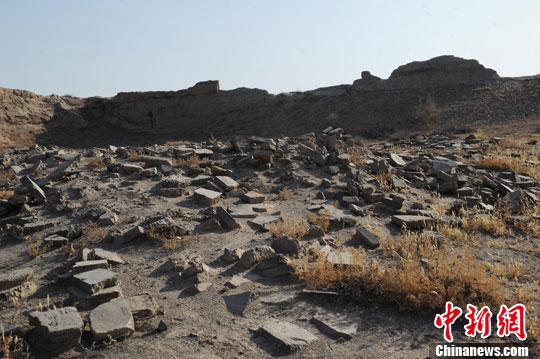
Zhangye Heishuiguo Yizhi.
Tickets, Hours, and Booking
Visiting the Zhangye Heishuiguo Yizhi (Black Water State Ruins) offers a fascinating glimpse into ancient Chinese civilization, with its rich history and archaeological significance. Here’s what you need to know about accessing this intriguing site.
Admission Details
-
Entry Fee: Access to the Heishuiguo ruins is completely free of charge. This makes it an affordable option for travelers who want to explore history without the burden of ticket costs.
-
Opening Hours: The site is open year-round, 24 hours a day, allowing visitors the flexibility to explore at their convenience. Early morning or late afternoon visits can provide a more serene experience away from the midday sun.
Location Access
The Heishuiguo Yizhi is located approximately 12.5 kilometers northwest of Zhangye city, along National Highway 312. Given its somewhat remote setting, it’s advisable to use a GPS device for navigation. Keep an eye out for signs marking the site; you may need to venture a couple of kilometers into the area to reach the ancient earth walls and remnants of the city.
Travel Tips
-
Transportation: As public transportation options to the ruins may be limited, renting a car or hiring a taxi from Zhangye is recommended. The journey typically costs between 80 to 100 RMB for a round trip.
-
Exploration Duration: Plan to spend about an hour at the site to take in the primary features, including the ancient walls and burial grounds, and to absorb the atmosphere of this historical location.
-
Safety Precautions: The site is relatively undeveloped and may have uneven terrain. Visitors should wear comfortable shoes and be cautious of the sandy environment, especially if traveling in a standard vehicle rather than an off-road one.
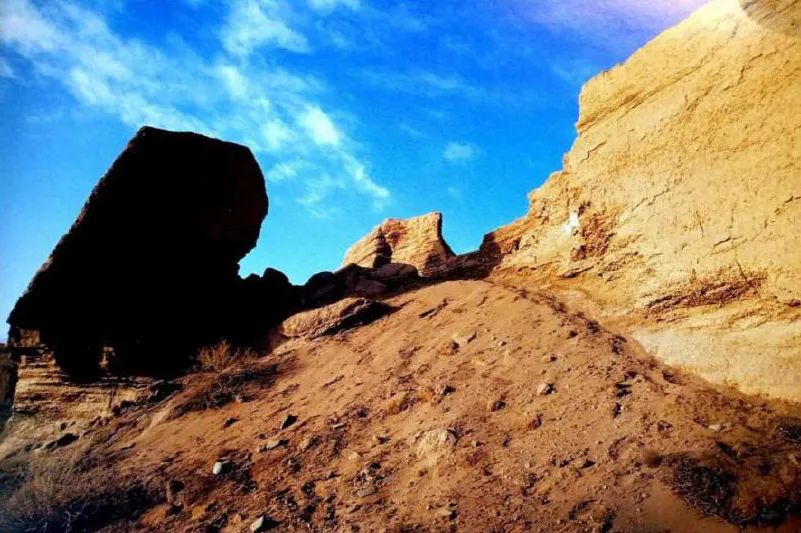
Zhangye Heishuiguo Yizhi.
The Heishuiguo Yizhi is not just a destination; it’s a journey back in time, offering a unique opportunity to connect with the ancient narratives of the region. Enjoy your exploration of this hidden gem!
How to Get There
Getting to Zhangye Heishuiguo Yizhi (黑水国遗址) can be an adventure in itself, as the site is located approximately 12.5 kilometers northwest of Zhangye city center, near the G312 national highway. Here’s a comprehensive guide on how to navigate your way to this historical gem.
By Car
Driving is perhaps the most convenient way to reach the Heishuiguo Yizhi. If you’re renting a car or have access to one, simply input the coordinates or the site name into your GPS. The journey from downtown Zhangye takes about 30 minutes, depending on traffic. As you approach the site, you will notice signs indicating the entrance. However, be prepared for a short drive along an unpaved road leading into the ruins—this part can be a bit rugged, so caution is advised, especially if you’re in a standard vehicle.
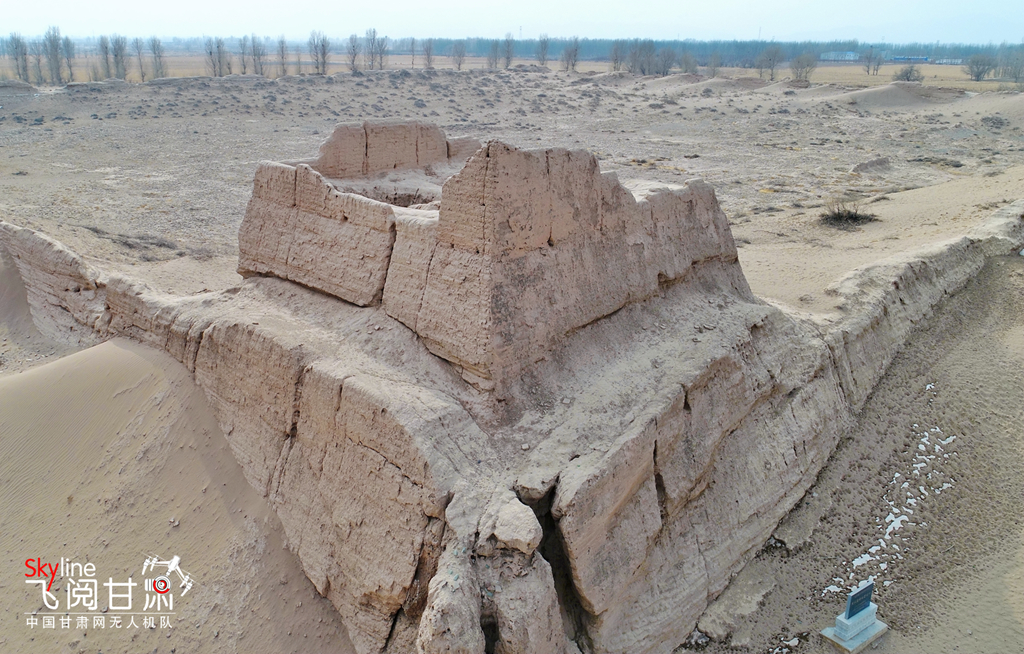
Zhangye Heishuiguo Yizhi.
Tip: If you’re not in an off-road vehicle, avoid attempting to navigate through sandy areas to prevent getting stuck.
Public Transportation
While public transport options directly to the site are limited, you can utilize local buses or taxis to get close. From Zhangye city, you can take a bus that heads toward Mingyong Township and then arrange for a taxi or ride-sharing service for the last leg of the journey. However, be mindful of the schedules, as they may not run frequently.
Estimated Cost: A taxi from Zhangye to the Heishuiguo Yizhi typically costs between 80 to 100 CNY, depending on your negotiation skills and the time of day.
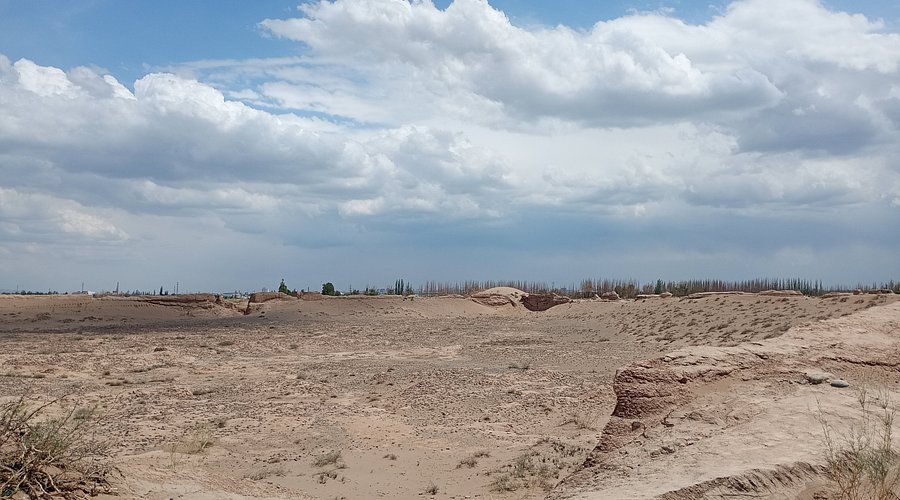
Zhangye Heishuiguo Yizhi.
Bicycling
For the more adventurous traveler, cycling to the site can be an exhilarating option. The route is relatively flat and offers picturesque views of the surrounding landscapes. Make sure to bring plenty of water and snacks, as facilities along the way may be sparse. This method allows for a more immersive experience as you can stop and appreciate the scenery and local culture along the way.
Best Time to Visit
Regardless of your mode of transportation, it’s advisable to visit during the cooler months—spring and autumn—when the weather is pleasant and conducive for exploration. The site is open year-round, 24 hours a day, allowing you the flexibility to plan your visit at your convenience.
Final Thoughts
Zhangye Heishuiguo Yizhi offers a unique glimpse into ancient history amidst stunning natural beauty. Whether you choose to drive, take public transport, or cycle, your journey will surely be an enriching part of your experience at this remarkable site. Ensure you plan ahead, especially regarding transportation options, to fully enjoy your visit to this UNESCO World Heritage candidate.
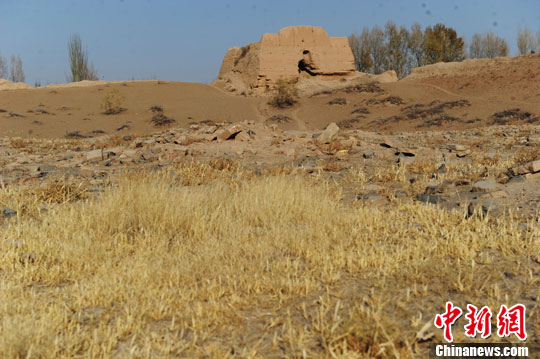
Zhangye Heishuiguo Yizhi.
Local Cuisine and Accommodation
When visiting the historic site of Zhangye Heishuiguo Yizhi (黑水国遗址), exploring the local culinary scene and finding comfortable accommodation will enhance your travel experience.
Culinary Delights
Zhangye is renowned for its distinct Northwestern Chinese cuisine, which features hearty flavors and robust ingredients. Here are a few must-try dishes and restaurants in the area:
-
Pengxin Lamb Restaurant (鹏馨羊羔肉老店)
Located about 14 km from the Heishuiguo site, this eatery is famous for its grilled lamb chops, seasoned with a variety of spices and served with unique dipping sauces. A meal here typically costs around ¥57 per person, making it both a delicious and affordable option. -
Ganzhou Famous Eats (甘州名吃)
Just a short drive from the site, this place offers a range of specialties from the region, including local noodle dishes and spicy hot pot. Expect to spend about ¥64 per person for a hearty meal. -
Danfeng Garden Hotel & Restaurant (丹霞湾田园酒店·餐厅)
If you’re looking for a relaxed dining atmosphere, this restaurant offers a delightful hot pot chicken set for two, priced at approximately ¥79. It’s a great spot to unwind after exploring the ancient ruins. -
Street Food Stalls
Don’t miss the vibrant street food scene in Zhangye! Vendors typically offer skewers, dumplings, and local pastries. Sampling these quick bites can provide a genuine taste of the local culture, often for just a few yuan.
Where to Stay
Zhangye offers a range of accommodations, from budget-friendly hostels to more luxurious hotels. Here are some recommendations based on comfort and convenience:
-
Zhangye Danxia Shenyuan Resort (张掖丹霞盛源饭店)
This hotel is well-reviewed for its comfortable rooms and proximity to natural attractions. Ideal for travelers who wish to explore the Danxia landform and the Heishuiguo site, it combines modern amenities with a touch of local charm. -
Zhangye Grand Hotel (张掖大酒店)
A more upscale option, this hotel provides excellent facilities, including a restaurant and fitness center. It’s located in the city center, making it a convenient base for both exploring local attractions and enjoying the culinary offerings of Zhangye. -
Qingyi Youth Hostel (张掖青驿青年旅舍)
Perfect for budget travelers or those looking for a social atmosphere, this hostel offers dormitory-style accommodations and private rooms. It’s a great place to meet fellow travelers and share experiences. -
Zhangye Flower Dragon Inn (张掖花龙万家客栈)
A cozy guesthouse that captures the essence of local hospitality, it offers personalized service and a warm atmosphere, making you feel at home during your stay.
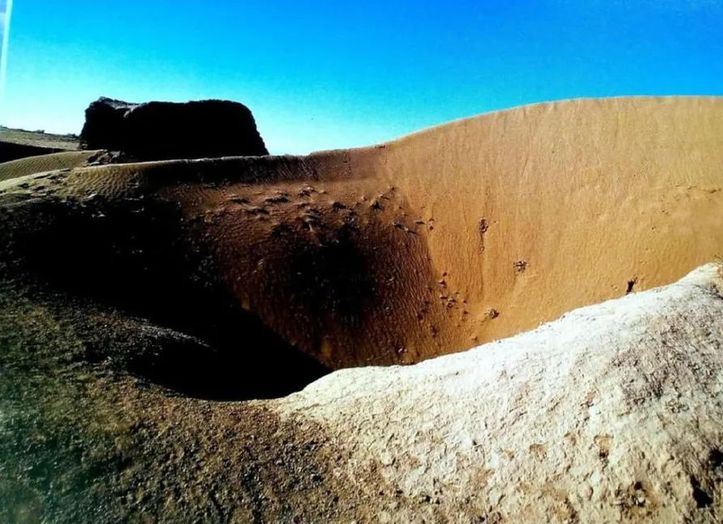
Zhangye Heishuiguo Yizhi.
Tips for Your Visit
- Transportation: Renting a car may be the most convenient way to explore the Heishuiguo site and nearby attractions, as public transportation options can be limited.
- Timing: Aim to visit during the cooler parts of the day, especially in summer, to fully enjoy your explorations without the heat.
- Local Culture: Engage with the locals during your meals; they often have fascinating stories and recommendations for hidden gems in the area.
With these culinary and accommodation options, your visit to Zhangye Heishuiguo Yizhi can be filled with delightful flavors and comfortable stays, enriching your exploration of this ancient cultural site.
Frequently Asked Questions
Frequently Asked Questions about Zhangye Heishuiguo Yizhi
- Where is the Zhangye Heishuiguo Yizhi located?
-
The Zhangye Heishuiguo Yizhi, also known as the Black Water State Ruins, is situated approximately 12.5 kilometers northwest of Zhangye city in Gansu Province, China.
-
What is the history behind the Heishuiguo Yizhi?
-
This site dates back over 4,000 years and was once the capital of the Xiongnu people, known as the “Little Yuezhi State.” It features remnants of ancient cities, Han dynasty tombs, and various archaeological artifacts that provide insight into the region’s rich history.
-
What are the opening hours and admission fees?
-
The site is open year-round and operates 24 hours a day. Admission is free, making it accessible for all visitors.
-
How can I get to the Heishuiguo Yizhi from Zhangye city?
-
Visitors can reach the ruins by car, with navigation systems providing accurate directions. It is advisable to take caution with standard vehicles due to sandy terrain; a four-wheel drive is recommended.
-
What should I expect when visiting the site?
-
The ruins consist of ancient earthen walls and tombs, providing a glimpse of the historical architecture and landscape. The area is largely undeveloped, which allows for an authentic and unspoiled experience.
-
Are there any amenities or facilities at the site?
-
As the Heishuiguo Yizhi is a relatively untouched archaeological site, visitor amenities are limited. It’s best to bring water, snacks, and any necessary supplies with you.
-
Is there any wildlife or natural scenery to enjoy?
-
Yes, the site is located near the Black River and offers beautiful natural scenery typical of the Gansu region, including unique geological formations and vast grasslands.
-
What other attractions are nearby?
- Several notable sites are in close proximity, including the Zhangye Danxia National Geological Park, the Great Buddha Temple, and various local dining options. These make for excellent additions to your travel itinerary.
Final Thoughts on Your Trip
Visiting the Zhangye Heishuiguo Yizhi is not just an exploration of ancient ruins, but a journey through time that offers a glimpse into China’s rich tapestry of history. As you wander through the remnants of this once-thriving capital of the Black Water Kingdom, you can almost hear the echoes of past civilizations that inhabited this vibrant expanse. The site, steeped in mystery and legend, serves as a poignant reminder of the rise and fall of cultures influenced by geography and conflict.
With its unblemished landscapes and the remnants of historical significance, the Heishuiguo ruins are a testament to human resilience and the stories that shaped the Silk Road. Whether you are a history enthusiast, an avid traveler, or simply seeking a tranquil escape, this site offers an authentic experience far removed from the hustle and bustle of modern life. As you leave, carry with you the tales of its past, a deeper appreciation for the interconnectedness of cultures, and an unforgettable memory of one of China’s hidden gems.
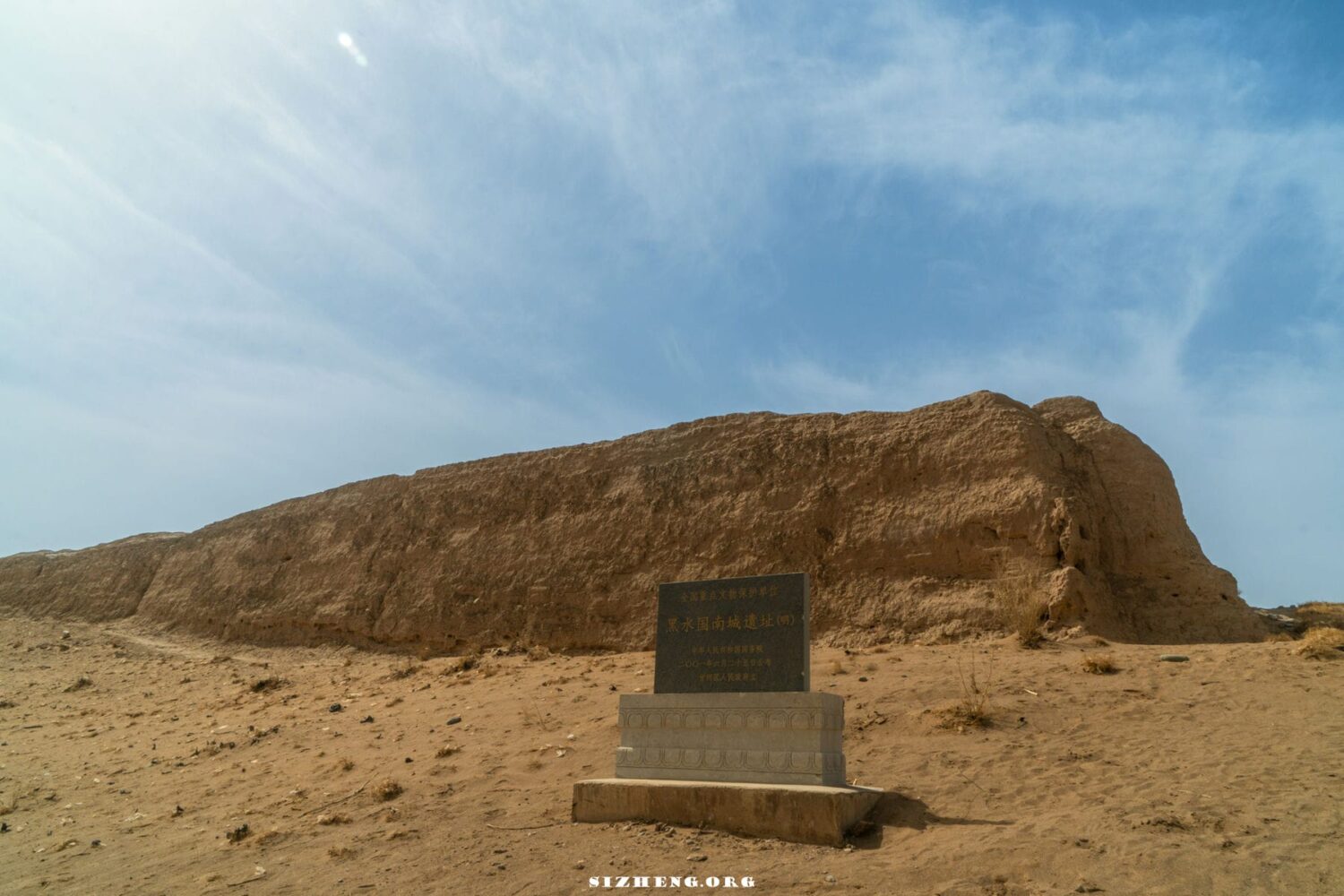
Zhangye Heishuiguo Yizhi.
Embrace the spirit of adventure and let the fascinating narratives of the Black Water Kingdom inspire your own journey through this remarkable land.
